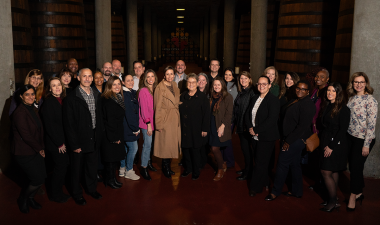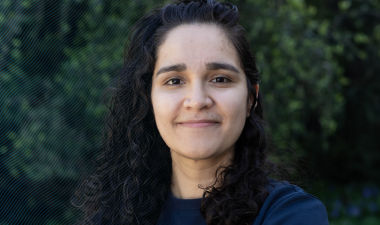Stanislaus State and the University of Texas at El Paso have been awarded a $5 million National Science Foundation (NSF) grant to fund scholarships and other support for high-achieving computer science students who have financial need and are focusing on cybersecurity and data science.
Awarded in July, the grant will be evenly divided between the two universities. It is the second NSF grant the schools have shared for computer science scholarships and other student support. The first was a $3.3 million grant awarded in 2016 with a focus solely on cybersecurity.
The newly awarded grant funds three- and four-year scholarships for at least 43 computer science students who either attend Stan State for four years or transfer to Stan State from Merced College. Four-year scholarships will go to three cohorts of 11 to 12 Warriors when they start as first-year students at Stan State in fall 2022, 2023 and 2024. At the same time, three-year scholarships will go to three cohorts of three Merced College students to cover the costs of their final year at Merced College and the next two years at Stan State, where they will finish their degrees.
“The scholarships allow students to put more focus on their schoolwork so they can earn a bachelor’s degree in four years and be ready for either graduate school or to compete in the computer science job market, particularly in two areas of great need: cybersecurity and data science,” said Stan State Professor of Computer Science Melanie Martin, a co-principal investigator who worked to secure the grant.
In addition to the scholarships, the grant will fund a research project that engages students and explores effective ways to create inclusive learning environments in computing while better serving academically talented students who have financial need.
Martin and Megan Thomas, associate professor of computer science and a co-principal investigator on the grant, say that involving students in research projects is beneficial because students who get research experience are more engaged in their educations, more likely to graduate and more likely to go on to graduate school or be more competitive in the job market.
“It helps build both their intellectual curiosity and self-confidence,” Thomas said.
Each student who receives a scholarship will also be sent to at least one Great Minds in STEM conference, which features scores of educational sessions, workshops and a massive career fair with hiring managers from Fortune 500 companies, government agencies, national labs and academia. With more than 100 interview booths set up at the conference each year, the hiring representatives are eager to recruit students or, at the very least, tell them about their organizations and the career opportunities available.
Martin and Thomas agree that the conference and the career fair are often transformational experiences for students.
“Students get so jazzed up when they see that once they get their degree, there are major companies out there, companies they’ve heard of, who want to hire people like them,” Thomas said. “It’s awesome.”
When students talk to the employers at the conference, Martin noted, they get a very clear picture of the extracurricular activities they need to include in their educational journeys.
“In interviews, when students are asked what sort of projects they’ve worked on, they very quickly realize, ‘whoa, I need to be working on projects,’” Martin said. “They leave the conference knowing what they need to do for the rest of their undergraduate career to position themselves to be competitive and ready for the work world.”
In addition, the students can participate in a college bowl and a student research poster session put on by GMiS. The Computer Alliance of Hispanic-Serving Institutions (CAHSI) Summit, which is co-located at the GMiS conference, will include a cybersecurity hack-a-thon, a data analytics challenge and a machine learning activity where students can compete. It will also offer workshops, including one focused on networking for Latina students.



